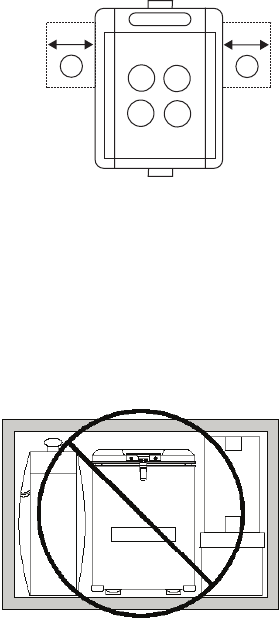
7
Convection Basics
When ventilating an enclosed space, consider the facts of natural convection, that cool air
falls and warm air rises. The ideal ventilation design will use natural convection and provide
a path for cool air to enter below the refrigerator/freezer and warmer air to exit above the
refrigerator/freezer. The design of the refrigerator/freezer allows this to occur if there is
a ventilation opening above the refrigerator/freezer. The heat created by the refrigerator/
freezer can then ow freely out of the enclosed space rather than be trapped within it.
Ventilation for Norcold Portable Refrigerator/Freezers
For the maximum cooling efciency and the lowest power
consumption, use the following guidelines. These are
especially important when using the refrigerator/freezer
under a counter or in an enclosed space.
- Make sure that there are at least 4 inches (102 mm)
of clearance [10] from the vents on each side of the
compressor compartment (See Art02218).
- When using the refrigerator/freezer in an enclosed
space such as an RV basement, make sure that
there are at least 48 square inches (310 square
cm) of ventilation area above the compressor
compartment. Less than 48 square inches
(310 square cm) of ventilation area will result in
poor refrigeration performance, continuous compressor operation, and a shortened
refrigerator/freezer life.
- The ventilation area should open into the living area of the vehicle
Storage
When storing portable refrigerator/freezers, make
sure that there are no obstructions (luggage, etc.)
around the refrigerator/freezer while it is operating
(See Art02219). Make sure that there is adequate
ventilation space to the refrigerator/freezer. Locate
the ventilation space in an area that allows natural
convection through the refrigerator/freezer condenser
coils and around the compressor.
10
10
Art02218
Art02219


















